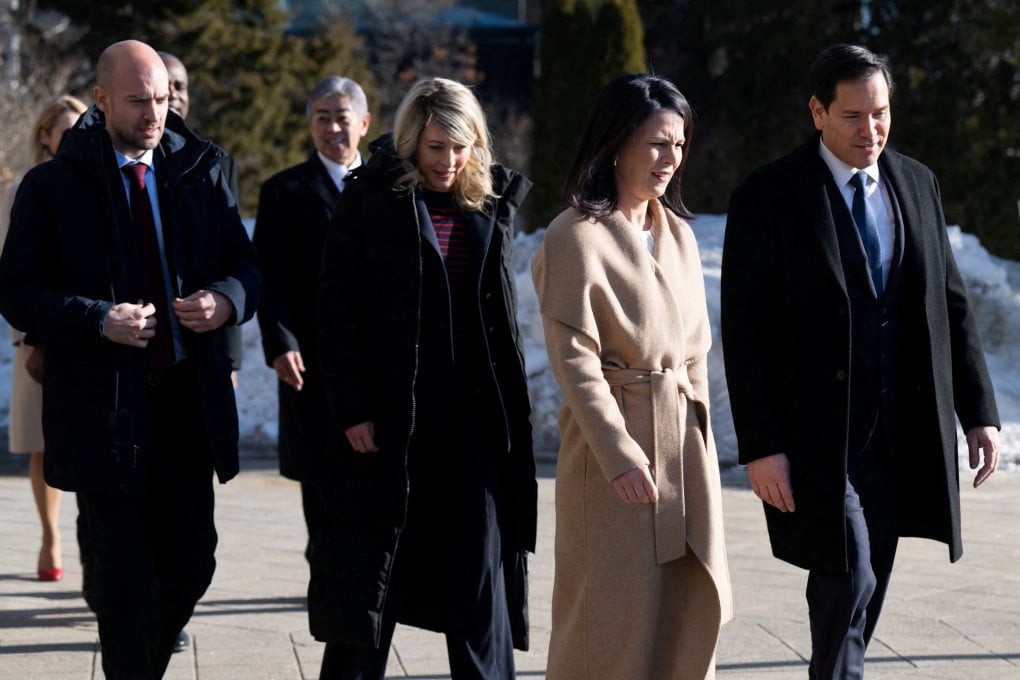Advertisement
G7 slams China’s ‘dangerous’ moves in South China Sea, voices strong support for Ukraine
Statement by foreign ministers gathered in Canada also highlights importance of ‘maintaining peace and stability’ across Taiwan Strait
Reading Time:4 minutes
Why you can trust SCMP
84

Mark Magnierin New York
Despite papered-over differences on trade, security and Russia, the Group of 7 took a firm stance against China’s muscle-flexing in the Indo-Pacific while voicing strong support for Ukraine’s “territorial integrity” and “right to exist” in its communique on Friday.
Advertisement
Foreign ministers of the G7 club of advanced economies gathering in Canada condemned by name China’s “militarisation and coercion” and “dangerous manoeuvres and water cannons” employed against its neighbours in the South China Sea.
The group also highlighted the importance of “maintaining peace and stability across the Taiwan Strait” and encouraged the peaceful resolution of cross-strait issues.
In addition, the G7 repeated its opposition to any unilateral attempts to “change the status quo by force or coercion” and expressed support for Taiwan’s “meaningful participation in appropriate international organisations”.
But most of the G7’s wrangling this week involved Washington’s stark about-face towards Russia since Trump’s second presidential term began in January.

The shift had raised concerns that the group would not be able to adopt a unified stance on ending the war in Ukraine, which Russia invaded in February 2022, as well as on China and the Middle East.
Advertisement
Advertisement